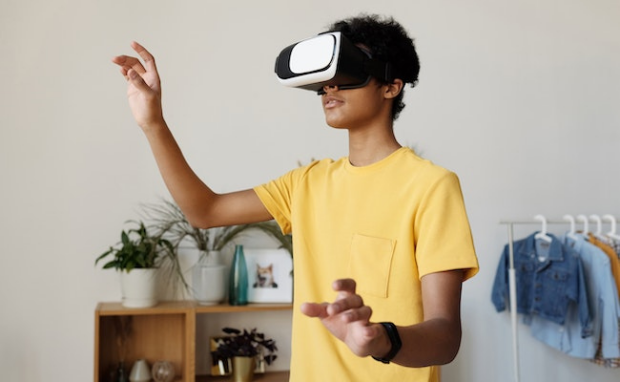Digital learning will replace classrooms in 25 years: study
Educational technology provider GoStudent commissioned research to predict how British students will learn in two decades. Believe it or not, the company says digital learning will enable students to learn anytime and anywhere via virtual reality, artificial intelligence, and other innovations. Soon, they may replace physical classrooms in 25 years.
Technologies have been rapidly transforming every facet of daily life, so it’s no surprise that it will radically change education. The study focused on UK-based students but mentions tech used in most countries. Consequently, it’s safe to say its predictions may occur outside the United Kingdom. In response, you must know what these changes will look like.
This article will discuss insights from “The End of School as You Know It: Education in 2050” white paper. Also, I will add information by putting links to my other articles.
Why would digital learning replace classrooms?

GoStudent co-founder and CEO Felix Ohswald explained why his company researched the future of UK education. He believes people consume information according to technological improvements.
“What we learn will also change,” Ohswald claimed. To actively continue to shape the future of how students learn, we must embrace what lies ahead. We’re excited to see how education will evolve and what this means for us as we continue on our mission to reimagine education.”
He shows that potential future in “The End of School as You Know It: Education in 2050” white paper. It begins with future education’s technological timeline:
- 2020s: Education will embrace artificial intelligence, drastically changing teaching methods. Coincidentally, I reported two days ago that more schools are using ChatGPT.
- 2030s: AI will take over tasks humans don’t want.
- 2040s: Virtual reality will create fully immersive experiences for education.
- 2050s: Brain implants will deliver knowledge by “merely downloading it directly to one’s brain.”
You may also like: North Korea will boost education with robots
The study said these innovations will cause a “rapid increase in the rate of change to how students learn.” Perhaps the most surprising prediction is that the physical classroom will no longer exist.
Instead, “School” will become a part of employment skills programs and leisure activities. Online learning will enable everyone to learn wherever and whenever removing the need for physical institutions.
You may enter an educational program to boost your career or to have fun. However, it may no longer be mandatory to enter conventional education.
How would digital learning replace classrooms?

GoStudent explained how EdTech platforms would change the main objective of education. Its research said, “Learning will no longer be driven purely by the skills that employers want and the subjects that governments or policy-makers value.”
Modern education’s purpose is to enable citizens to contribute to a nation’s economy by serving a role. Governments and companies will still demand educated workers, but students will have more freedom in their purpose.
The paper cites Taiwan, a country that allows students to explore their interests, become lifelong learners, and pursue their goals. That new system is the “108 Curriculum.”
Teachers will remain, but they will use artificial intelligence. AI will help them guide their students’ learning pace and subject choice. Also, they could expand their lessons worldwide as AI translates their words live.
In other words, courses may become available as livestreams like Twitch. You choose which classes to enter as teachers follow their schedules. Later, EdTech platforms may use the Metaverse.
The Metaverse refers to merging the real world and digital spaces into one. It uses virtual reality goggles and other tools to immerse students in online worlds.
For example, a teacher discussing Mars could transport their class into a VR simulation of the Red Planet. As a result, students could immediately connect their lessons with real-life concepts.
You may also like: Notebooks engage brains more than gadgets
Blockchain and Web 3.0 will also become parts of modern education. They will create digital credentials to replace the conventional curriculum vitae and resume.
Students will have a digital skills tracker with tokens earned from class completion. Meanwhile, brain implants may detect when a student is getting exhausted or burnt out.
By 2050, GoStudent says these innovations will return education to its roots. It cites the etymology of the term “education,” the Greek word “scholē,” meaning “leisure.”
Conclusion
A recent study suggests digital learning will replace physical classrooms by 2050. Students may learn anything, anytime, anywhere, using various innovations.
GoStudent focused on UK-based students, but these predictions would likely occur worldwide. Hence, you should prepare for these transformative technologies.
Fortunately, you can start by reading Inquirer Tech. It has numerous articles explaining AI, virtual reality, Web 3.0, blockchain, gadgets, apps, and more.














